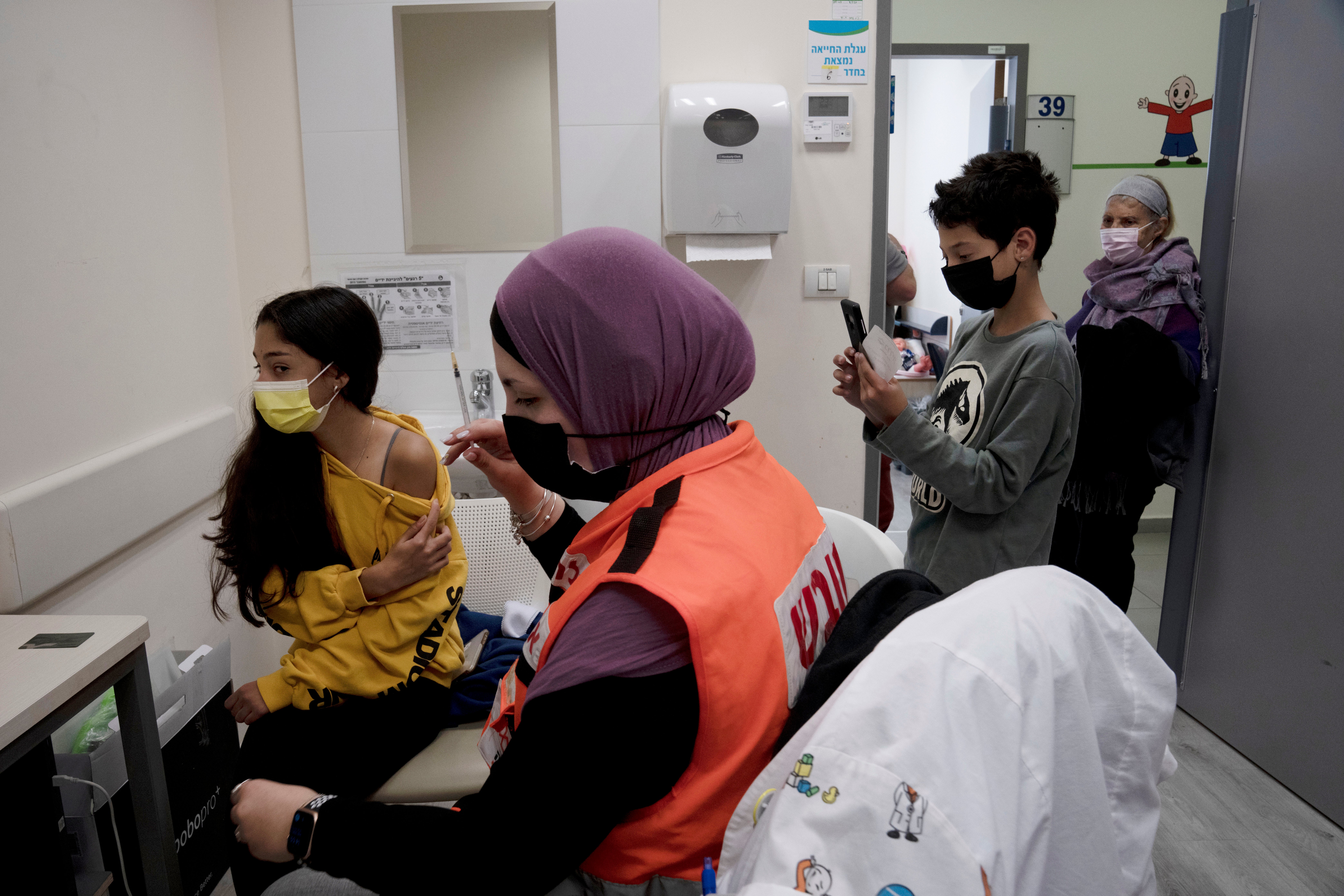Israel study: 4th vaccine shows limited results with omicron
An Israeli hospital says preliminary research indicates a fourth dose of the coronavirus vaccine provides only limited defense against the omicron variant that's raging around the world

Your support helps us to tell the story
From reproductive rights to climate change to Big Tech, The Independent is on the ground when the story is developing. Whether it's investigating the financials of Elon Musk's pro-Trump PAC or producing our latest documentary, 'The A Word', which shines a light on the American women fighting for reproductive rights, we know how important it is to parse out the facts from the messaging.
At such a critical moment in US history, we need reporters on the ground. Your donation allows us to keep sending journalists to speak to both sides of the story.
The Independent is trusted by Americans across the entire political spectrum. And unlike many other quality news outlets, we choose not to lock Americans out of our reporting and analysis with paywalls. We believe quality journalism should be available to everyone, paid for by those who can afford it.
Your support makes all the difference.An Israeli hospital on Monday said preliminary research indicates a fourth dose of the coronavirus vaccine provides only limited defense against the omicron variant that is raging around the world.
Sheba Hospital last month began administering a fourth vaccine to more than 270 medical workers — 154 who received a Pfizer-BioNtech vaccine and 120 others who received Moderna s. All had previously been vaccinated three times with the Pfizer-BioNtech vaccine.
The clinical trial found that both groups showed increases in antibodies “slightly higher” than following the third vaccine last year. But it said the increased antibodies did not prevent the spread of omicron.
“Despite increased antibody levels, the fourth vaccine only offers a partial defense against the virus,” said Dr. Gili Regev-Yochay, director of the hospital's infection disease unit. “The vaccines, which were more effective against previous variants, offer less protection versus omicron."
The preliminary results raised questions about Israel's decision to offer a second booster shot — and fourth overall — to its over-60 population. The government says over 500,000 people have received the second booster in recent weeks.
Dr. Nahman Ash, director of Israel's Health Ministry, said the research did not mean the fourth vaccine effort was a mistake. “It returns the level of antibodies to what it was at the beginning of the third booster. That has great importance, especially among the older population,” he told Channel 13 TV.
But he said the research would be taken into account as authorities debate whether to expand the additional booster campaign to the broader population.
Israel was one of the first countries last year to widely vaccinate its population and last summer became the first to offer a booster shot. The latest booster campaign for older Israelis also is believed to be the first of its kind in the world.
Israel's aggressive vaccination efforts have not been able to stop an omicron outbreak in recent weeks. The variant has caused record-setting infection levels and sent a growing number of people to the hospital, though the numbers of seriously ill remain below previous waves.
It has also forced large numbers of Israelis into quarantine, straining schools and businesses.
Omicron is already dominant in many countries and can also infect those who have been vaccinated or had previously been infected by prior versions of the virus. Early studies, however, show it is less likely to cause severe illness than the previous delta variant. Vaccination and a booster still offer strong protection from serious illness, hospitalization and death.
On Tuesday, the Israeli government said it was shortening the mandatory quarantine period from seven days to five days in order to help keep the economy running.
"This decision will enable us to continue safeguarding public health on the one hand and to keep the economy going at this time on the other, even though it is difficult, so that we can get through this wave safely,” said Prime Minister Naftali Bennett